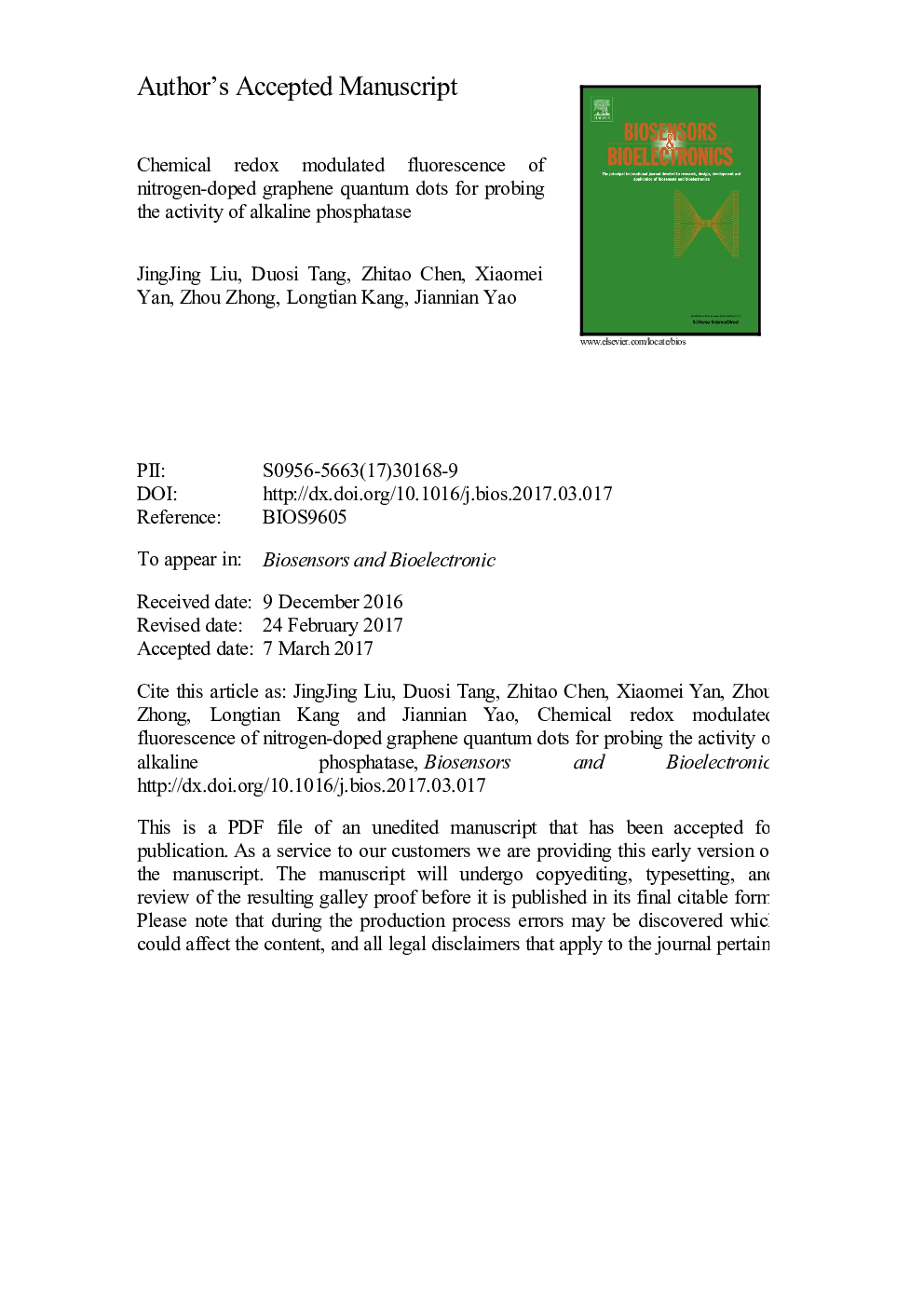| Article ID | Journal | Published Year | Pages | File Type |
|---|---|---|---|---|
| 5031053 | Biosensors and Bioelectronics | 2017 | 29 Pages |
Abstract
Alkaline phosphatase (ALP) as an essential enzyme plays an important role in clinical diagnoses and biomedical researches. Hence, the development of convenient and sensitivity assay for monitoring ALP is extremely important. In this work, on the basis of chemical redox strategy to modulate the fluorescence of nitrogen-doped graphene quantum dots (NGQDs), a novel label-free fluorescent sensing system for the detection of alkaline phosphatase (ALP) activity has been developed. The fluorescence of NGQDs is firstly quenched by ultrathin cobalt oxyhydroxide (CoOOH) nanosheets, and then restored by ascorbic acid (AA), which can reduce CoOOH to Co2+, thus the ALP can be monitored based on the enzymatic hydrolysis of L-ascorbic acid-2-phosphate (AAP) by ALP to generate AA. Quantitative evaluation of ALP activity in a range from 0.1 to 5Â U/L with the detection limit of 0.07Â U/L can be realized in this sensing system. Endowed with high sensitivity and selectivity, the proposed assay is capable of detecting ALP in biological system with satisfactory results. Meanwhile, this sensing system can be easily extended to the detection of various AA-involved analytes.
Related Topics
Physical Sciences and Engineering
Chemistry
Analytical Chemistry
Authors
JingJing Liu, Duosi Tang, Zhitao Chen, Xiaomei Yan, Zhou Zhong, Longtian Kang, Jiannian Yao,
